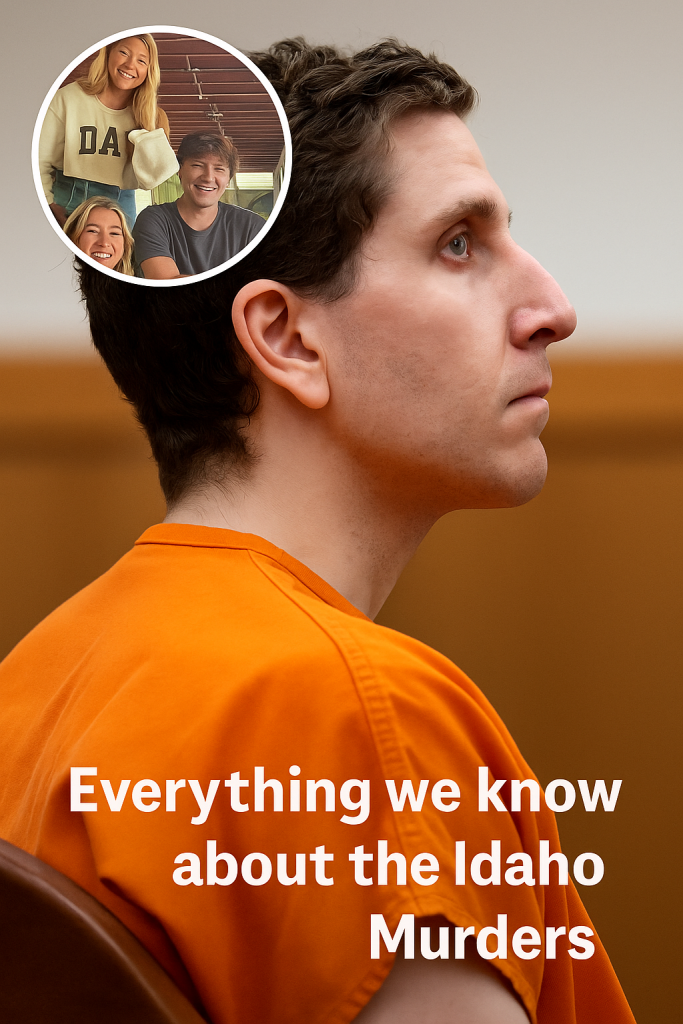In a development that has sent shockwaves through Idaho and beyond, the recent plea deal offered in a high-profile murder case has ignited intense outrage among the victims’ families. The agreement, viewed by many as unexpectedly lenient, has raised serious questions about judicial discretion and the pursuit of justice in a tragedy that left a community devastated.
The Case at a Glance
The Idaho murders in question involved multiple victims and gained national attention due to their tragic circumstances and the complex investigation that followed. After months of legal proceedings, the defendant’s legal team and the District Attorney’s office reached a plea deal aimed at bringing closure to the prolonged case. However, the terms of the agreement have shocked many who expected a harsher sentence given the severity of the crimes.
Victims’ Families Voice Anger
In the wake of the deal’s announcement, several members of the victims’ families spoke out passionately, expressing their disbelief and frustration. “This plea deal feels like a betrayal,” said one family member. “We were hoping for accountability, but this hardly feels like justice for our loved ones.”
Many families feel the plea deal undermines the gravity of the offenses and the suffering endured. Their vocal condemnation has sparked wider public debates around victim rights and the ethics of plea bargaining in violent crime cases.
Explaining the Plea Deal
According to legal experts familiar with the case, plea agreements are often used to secure a conviction without the uncertainties of a trial, potentially saving time and resources. The District Attorney, responding to the backlash, stated that the decision was based on multiple factors, including securing a guaranteed sentence and sparing victims’ families the trauma of reliving the events in court. “While difficult, this was a path toward resolution,” the DA explained in a recent statement.
Nevertheless, the specific terms of the plea deal—such as the length of the sentence, potential for parole, or charges dropped—have not been publicly detailed, further fueling speculation and dissatisfaction among the public and the victims’ advocates.
Judicial Reaction and Public Scrutiny
The presiding judge has faced increased scrutiny as well. Observers wonder whether the judicial authority will accept the plea deal as proposed or push for harsher consequences. Critics argue that the judge’s approval could set a troubling precedent for handling serious crimes, while supporters note the importance of judicial discretion in complex cases.
Legal analysts emphasize the balance courts must strike—between meting out punishment and recognizing practical realities—often under intense public pressure.
Community Impact and Moving Forward
The case has galvanized advocacy groups and community members, many rallying for reforms that better address victims’ needs and increase transparency in plea negotiations. Online forums and social media remain abuzz with calls for accountability and systemic change.
As this controversial plea deal unfolds, all eyes remain on the courtroom and public officials involved. For the victims’ families, the hope is that their voices will be heard and that the ultimate outcome honors the memory of those lost.
What’s Next?
The court is expected to hold further hearings in the coming weeks, potentially allowing additional testimonies or motions related to the agreement. Meanwhile, public interest and pressure continue to mount, reflecting a community not willing to accept anything less than rigorous justice.
For now, the Idaho murders case stands as a poignant reminder of the difficulties in balancing legal pragmatism with emotional and moral demands for justice.



